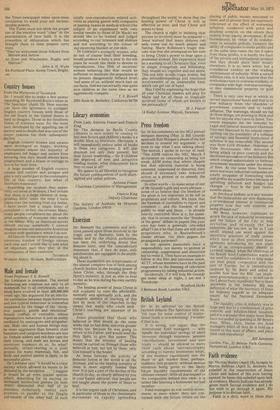Press freedom
Sir: In his comments on the NUJ annual delegate meeting (May 3) Bill Grundy applauds Ken Morgan's abuse of me but declines to answer my argument — or even to say what I was talking about. The motion I spoke in favour of read: "This ADM rejects the NEC March 8 declaration on censorship as being too weak. ADM states that where chapels feel that editorial material is being censored, suppressed or distorted, they should if necessary take industrial action as a protest or to remedy the situation."
In other words — to make sense of one of Mr Grundy's glib and worn phrases — some of us believe that the freedom of the press is too important to be left to proprietors and editors. We think that the freedom of journalists to report and comment — and the freedom of the public to read and listen — is already heavily restricted. How is it, for example, that in recent months the "freedom of the press" debate in papers like your own has been a generally one-sided affair? Can it be that there are still some proprietors who, in Beaverbrook's classic phrase, run their papers for propaganda purposes?
In my opinion journalists have a responsibility not merely to protest at censorship, suppression and distortion but to resist it. They have an example to follow in the film and television union, ACTT, whose members have in the past responded to the banning of television programmes by taking industrial action. Incidentally, if it will help Mr Grundy get some sleep at night, I am not a Trotskyist.
Wynford Hicks 3 Belmont Road, London SW4.










































 Previous page
Previous page